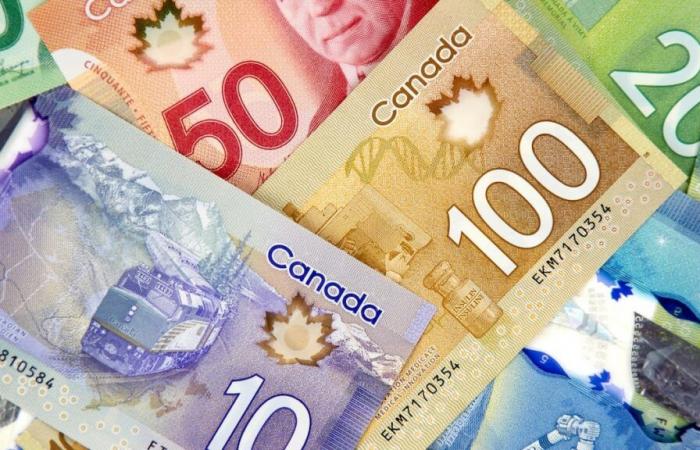The “significant” increase in the prices of food purchased in stores contributed to the increase in inflation in the country in October, but was slightly attenuated by gasoline prices and a slowdown in the growth of housing prices, according to the latest Statistics Canada data released Tuesday.
The Consumer Price Index (CPI) increased by 2% year-on-year in October, after increasing by 1.6% a month earlier.
According to the federal agency, this rise is largely attributable to gasoline prices which showed a less marked drop in October (-4%), compared to the month of September (-10.7%).
House prices continued to slow in October, increasing 4.8% year over year, following a 5% increase in September. Additionally, growth in mortgage interest costs has slowed year over year since September 2023, after peaking in August 2023 (+30.9%).
Same thing for rental prices, which recorded a smaller increase from one year to the next in October (+7.3%) compared to September (+8.2%).
Food prices are accelerating
Prices for food purchased in stores showed a “larger” year-over-year increase in October (+2.7%) than in September (+2.4%).
This is the third consecutive month where price growth in grocery stores has exceeded overall inflation, noted Statistics Canada.
The increase in prices of other fresh vegetables (+7.3%) and canned fruits and fruit-based preparations (+7.6%) contributed significantly to this increase. The increase was, however, attenuated by the downward pressure exerted by the prices of fresh or frozen beef in October (+7% compared to +9.2% in September).
Generally speaking, prices increased “more pronouncedly” in October than in September, in all provinces, from one year to the next.
In Quebec, the inflation rate decreased by 0.3% between September 2024 and October 2024, and increased by 1.6% between October 2023 and October 2024.
Change in the CPI, between October 2023 and October 2024
Food purchased in stores: +2.7%
Housing: +4.8%
Clothing and shoes: -2.3%
Essence: -4 %
Health care and personal care: +3.1%
Alcoholic beverages, tobacco and cannabis: +3%
Canada as a whole: +2%






